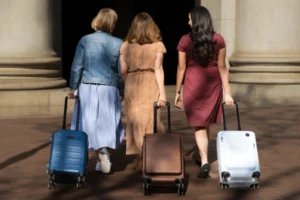In the world of firearms and ammunition, brass shell casings play a crucial role. Once fired, these casings have the potential to become more than just a byproduct of shooting; they can be transformed into valuable resources through recycling. The recycling of brass shell casings is not only environmentally responsible but also contributes to resource conservation, energy savings, and the reduction of waste in landfills. This article explores the process of recycling brass shell casings, its environmental impact, and the various benefits associated with this sustainable practice.
The Recycling Process:
Recycling brass shell casings involves a series of steps to convert used casings into reusable materials. The process typically begins with the collection of spent shell casings from shooting ranges, military training grounds, and other sources. These casings are then sorted to separate brass from other materials, such as steel or aluminum. Sorting is a critical step as it ensures the purity of the recycled brass, making it suitable for various applications.
Once sorted, the brass casings undergo a cleaning process to remove contaminants such as gunpowder residue and dirt. This cleaning can be done through tumbling or other mechanical methods, resulting in casings that are free from impurities and ready for recycling.
The next step involves melting the cleaned brass casings in a furnace. Brass has a relatively low melting point, making it energy-efficient to melt and reform. The molten brass is then shaped into ingots or other forms for later use in manufacturing new products.
Environmental Impact:
The environmental impact of recycling brass shell casings is significant. By reusing these casings, the demand for virgin brass – which requires mining, extraction, and processing – is reduced. Mining for metals has well-documented environmental consequences, including habitat destruction, soil erosion, and water pollution. By choosing recycled brass, we can mitigate these environmental impacts and conserve natural resources.
Furthermore, the recycling process itself is energy-efficient. Producing brass from recycled materials requires considerably less energy compared to the production of brass from raw materials. This energy savings contributes to the reduction of greenhouse gas emissions and lowers the overall carbon footprint associated with brass manufacturing.
Benefits of Recycling Brass Shell Casings:
- Resource Conservation: Recycling brass shell casings conserves valuable natural resources. It reduces the need for mining and extraction, preserving the earth’s resources for future generations.
- Energy Savings: The energy required to recycle brass is significantly lower than that needed for extracting and processing raw materials. This energy efficiency contributes to a more sustainable and environmentally friendly manufacturing process.
- Waste Reduction: Recycling brass shell casings minimizes the amount of waste entering landfills. Rather than discarding used casings, they are repurposed into new products, extending their lifecycle and reducing the burden on waste management systems.
- Economic Benefits: The recycling industry, including brass recycling, generates economic opportunities. It creates jobs in collection, sorting, and processing, contributing to local economies and fostering a sustainable business model.
- Green Manufacturing: Using recycled brass in manufacturing processes aligns with green and sustainable practices. Companies that prioritize recycled materials in their production contribute to a circular economy and enhance their eco-friendly reputation.
Conclusion:
Recycling brass shell casings is a prime example of how responsible practices within the firearms industry can contribute to a more sustainable future. By diverting spent casings from landfills and reusing them, we not only reduce the environmental impact but also conserve resources and energy. As individuals, businesses, and communities continue to embrace recycling, the positive effects on the environment and the economy will undoubtedly grow. It’s time to recognize the value in every spent brass casing and appreciate the art of transforming it into a resourceful and eco-friendly material.







